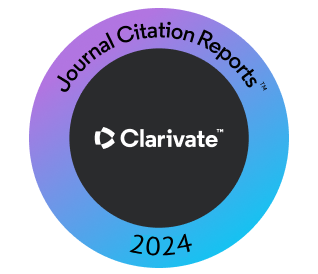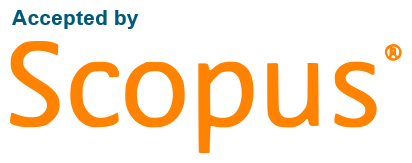Artificial Intelligence Integration in Academic Writing
Insights from the University of Duhok
Abstract
This study investigates the use of artificial intelligence (AI) technologies among academics at the University of Duhok (UoD), focusing on their perspectives, preferences, and intentions toward integrating AI within academic and research environments. A survey was conducted through Google Forms, targeting postgraduate students, recent alumni (since 2020), and faculty members of UoD in the Kurdistan region of Iraq. A total of 674 participants, aged 22–70 years, responded. The findings indicate that only 36.94% had employed AI technologies. Among AI users (n = 249), primary sources of information were friends or colleagues (46.59%) and social media (35.74%). Younger individuals and those holding master’s degrees exhibited a stronger tendency toward AI usage (p < 0.0001), whereas gender and academic discipline had minimal influence. ChatGPT was the most widely used tool (70.68%), followed by Quill Bot (42.17%), Grammarly (34.94%), and Google Bard (29.32%). The main AI applications were text paraphrasing (33.73%) and information retrieval (15.26%). Notably, 47.58% of respondents recommended AI for various academic tasks, including scientific research and idea generation. In conclusion, the study shows that only one-third of UoD faculty members utilize AI, predominantly for text paraphrasing. Nearly half of the participants suggested the adoption of AI by postgraduate students and academic staff.
Downloads
References
Adedokun, A., 2024. Global ai regulatory landscape challenges, trends, and future outlook. In: Trends, and Future Outlook. [SSRN Paper]. DOI: https://doi.org/10.2139/ssrn.4855369
Aldoseri, A., Al-Khalifa, K., and Hamouda, A., 2023. A Roadmap for Integrating Automation with Process Optimization for Ai-powered Digital Transformation. [Preprints]. DOI: https://doi.org/10.20944/preprints202310.1055.v1
Alemi, M., and Abdollahi, A., 2021. A cross-cultural investigation on attitudes towards social robots: Iranian and chinese university students. Journal of Higher Education Policy and Leadership Studies, 2(3), pp.120-38. DOI: https://doi.org/10.52547/johepal.2.3.120
Barrot, J.S., 2022. Integrating technology into esl/efl writing through grammarly. Relc Journal, 53(3), pp.764-68. DOI: https://doi.org/10.1177/0033688220966632
Bin-Nashwan, S.A., Sadallah, M., and Bouteraa M., 2023. Use of chatgpt in academia: Academic integrity hangs in the balance. Technology in Society, 75, pp.102370. DOI: https://doi.org/10.1016/j.techsoc.2023.102370
Cath, C., Wachter, S., Mittelstadt, B., Taddeo, M., and Floridi L., 2018. Artificial intelligence and the ‘good society’: The us, eu, and uk approach. Science and Engineering Ethics, 24, pp.505-28. DOI: https://doi.org/10.1007/s11948-017-9901-7
Cestonaro, C., Delicati, A., Marcante, B., Caenazzo, L., and Tozzo, P., 2023. Defining medical liability when artificial intelligence is applied on diagnostic algorithms: A systematic review. Frontiers in Medicine (Lausanne), 10, pp.1305756. DOI: https://doi.org/10.3389/fmed.2023.1305756
Chanthiran, M., Ibrahim, A.B., Rahman, M.H.A., Kumar, S., and Dandage, R.V., 2022. A systematic literature review with bibliometric meta-analysis of ai technology adoption in education. Educatum Journal of Science, Mathematics and Technology, 9, pp.61-71. DOI: https://doi.org/10.37134/ejsmt.vol9.sp.7.2022
Coenen, A., Davis, L., Ippolito, D., Reif, E., and Yuan, A., 2021. Wordcraft: A Human-ai Collaborative Editor for Story Writing. arXiv Preprint.
Cubric, M., 2020. Drivers, barriers and social considerations for ai adoption in business and management: A tertiary study. Technology in Society, 62, pp.101257. DOI: https://doi.org/10.1016/j.techsoc.2020.101257
Dergaa, I., Chamari, K., Zmijewski, P., and Saad, H.B., 2023. From human writing to artificial intelligence generated text: Examining the prospects and potential threats of chatgpt in academic writing. Biology of Sport, 40(2), pp.615-22. DOI: https://doi.org/10.5114/biolsport.2023.125623
Farahani, M.S., and Ghasemi, G., 2024. Artificial intelligence and inequality: Challenges and opportunities. Qeios, 7, pp.1-14.
Gerlich, M., 2023. Perceptions and acceptance of artificial intelligence: A multi dimensional study. Social Sciences, 12(9), pp.502. DOI: https://doi.org/10.3390/socsci12090502
Hajkowicz, S., Sanderson, C., Karimi, S., Bratanova, A., and Naughtin, C., 2023. Artificial intelligence adoption in the physical sciences, natural sciences, life sciences, social sciences and the arts and humanities: A bibliometric analysis of research publications from 1960-2021. Technology in Society, 74, pp.102260. DOI: https://doi.org/10.1016/j.techsoc.2023.102260
Harvey, H.B., and Gowda, V., 2021. Regulatory issues and challenges to artificial intelligence adoption. Radiologic Clinics, 59(6), pp.1075-83. DOI: https://doi.org/10.1016/j.rcl.2021.07.007
Hosen, M., Ogbeibu, S., Giridharan, B., Cham, T.H., Lim, W.M., and Paul, J., 2021. Individual motivation and social media influence on student knowledge sharing and learning performance: Evidence from an emerging economy. Computers and Education, 172, pp.104262. DOI: https://doi.org/10.1016/j.compedu.2021.104262
Huang, K., 2023. Alarmed by ai chatbots, universities start revamping how they teach. The New York Times, 16. Imran, A., 2023. Why addressing digital inequality should be a priority. The Electronic Journal of Information Systems in Developing Countries, 89(3), pp.e12255. DOI: https://doi.org/10.1002/isd2.12255
Jin, F., and Zhang X., 2023. Artificial intelligence or human: When and why consumers prefer AI recommendations. Information Technology and People, ahead-of-print. DOI: https://doi.org/10.1108/ITP-01-2023-0022
Kabalisa, R., and Altmann J., 2021. Ai Technologies and Motives for Ai Adoption by Countries and firms: A Systematic Literature Review. In: Economics of Grids, Clouds, Systems, and Services: 18th International Conference, GECON 2021, Virtual Event, September 21-23, 2021, Proceedings. Vol. 18. Springer, Berlin, pp.39-51. DOI: https://doi.org/10.1007/978-3-030-92916-9_4
Kacena, M.A., Plotkin, L.I., and Fehrenbacher, J.C., 2024. The use of artificial intelligence in writing scientific review articles. Current Osteoporosis Reports, 22, pp.1-7. DOI: https://doi.org/10.1007/s11914-023-00852-0
Khalil, M., and Er, E., 2023. Will Chatgpt Get you Caught? Rethinking of Plagiarism Detection. In: International Conference on Human-Computer DOI: https://doi.org/10.35542/osf.io/fnh48
Interaction. Springer, Berlin, pp.475-87.
King, M.R., 2023. The future of ai in medicine: A perspective from a chatbot. Annals of Biomedical Engineering, 51(2), pp.291-95. DOI: https://doi.org/10.1007/s10439-022-03121-w
Kucuk, S., and Sisman, B., 2020. Students’ attitudes towards robotics and stem: Differences based on gender and robotics experience. International Journal of Child-Computer Interaction, 23, p.100167. DOI: https://doi.org/10.1016/j.ijcci.2020.100167
Kumar, P., Manikandan, S., and Kishore, R., (2024). Ai-driven Text Generation: A Novel Gpt-based Approach for Automated Content Creation. In: DOI: https://doi.org/10.1109/ICNWC60771.2024.10537562
nd International Conference on Networking and Communications (ICNWC). IEEE, New Jersey, pp.1-6.
Livberber, T., and Ayvaz, S., 2023. The impact of artificial intelligence in academia: Views of turkish academics on chatgpt. Heliyon, 9(9), e19688. DOI: https://doi.org/10.1016/j.heliyon.2023.e19688
Lo, C.K., Hew, K.F., and Jong, M.S.Y., 2024. The influence of chatgpt on student engagement: A systematic review and future research agenda. Computers and Education, 219, pp.105100. DOI: https://doi.org/10.1016/j.compedu.2024.105100
Lund, B.D., and Wang, T., 2023. Chatting about chatgpt: How may ai and gpt impact academia and libraries? Library Hi Tech News, 40(3), pp.26-29. DOI: https://doi.org/10.1108/LHTN-01-2023-0009
Nazari, N., Shabbir, M.S., and Setiawan, R., 2021. Application of artificial intelligence powered digital writing assistant in higher education: Randomized controlled trial. Heliyon, 7(5), e07014. DOI: https://doi.org/10.1016/j.heliyon.2021.e07014
Nobles, S., and Paganucci, L., 2015. Do digital writing tools deliver? Student perceptions of writing quality using digital tools and online writing environments. Computers and Composition, 38, pp.16-31. DOI: https://doi.org/10.1016/j.compcom.2015.09.001
Roy, R., Babakerkhell, M.D., Mukherjee, S., Pal, D., and Funilkul, S., 2022. Evaluating the intention for the adoption of artificial intelligence-based robots in the university to educate the students. IEEE Access, 10, pp.125666-125678. DOI: https://doi.org/10.1109/ACCESS.2022.3225555
Salvagno, M., Taccone, F.S., and Gerli, A.G., 2023. Can artificial intelligence help for scientific writing? Critical Care, 27(1), pp.99. DOI: https://doi.org/10.1186/s13054-023-04380-2
Steponenaite, A., and Barakat, B., (2023). Plagiarism in ai empowered world. International Conference on Human-Computer Interaction. Springer, Berlin, pp.434-442. DOI: https://doi.org/10.1007/978-3-031-35897-5_31
Thai, K., Tsiandoulas, K.H., Stephenson, E.A., Menna-Dack, D., Shaul, R.Z., Anderson, J.A., Shinewald, A.R., Ampofo, A., and McCradden, M.D., 2023.
Perspectives of youths on the ethical use of artificial intelligence in health care research and clinical care. JAMA Network Open, 6(5), p.e2310659. DOI: https://doi.org/10.1001/jamanetworkopen.2023.10659
Tlili, A., Shehata, B., Adarkwah, M.A., Bozkurt, A., Hickey, D.T., Huang R., and Agyemang, B., 2023. What if the devil is my guardian angel: Chatgpt as a case study of using chatbots in education. Smart Learning Environments, 10(1), pp.15. DOI: https://doi.org/10.1186/s40561-023-00237-x
Venkatesh, V., Morris, M.G., Davis, G.B., and Davis, F.D., 2003. User acceptance of information technology: Toward a unified view. MIS Quarterly, pp.425-78. DOI: https://doi.org/10.2307/30036540
Williams, M.D., Rana, N.P., and Dwivedi, Y.K., 2015. The unified theory of acceptance and use of technology (utaut): A literature review. Journal of DOI: https://doi.org/10.1108/JEIM-09-2014-0088
Enterprise Information Management, 28(3), pp.443-488.
Winans, M.D., 2021. Grammarly’s tone detector: Helping students write pragmatically appropriate texts. Relc Journal, 52(2), pp.348-52. DOI: https://doi.org/10.1177/00336882211010506
Yang, B., Zhang, R., Cheng, X., and Zhao, C., 2023. Exploring information dissemination effect on social media: An empirical investigation. Personal and Ubiquitous Computing, 27(4), pp.1469-82. DOI: https://doi.org/10.1007/s00779-023-01710-7
Zhao, X., 2023. Leveraging artificial intelligence (ai) technology for english writing: Introducing wordtune as a digital writing assistant for efl writers. RELC Journal, 54(3), pp.890-94. DOI: https://doi.org/10.1177/00336882221094089
Zhao, Y., Llorente, A.M.P., and Gómez, M.C.S., 2021. Digital competence in higher education research: A systematic literature review. Computers and Education, 168, p.104212. DOI: https://doi.org/10.1016/j.compedu.2021.104212
Zohuri, B., and Mossavar-Rahmani, F., 2024. Revolutionizing education: The dynamic synergy of personalized learning and artificial intelligence. International Journal of Advanced Engineering and Management Research, 9(1), pp.143-53. DOI: https://doi.org/10.51505/ijaemr.2024.9111
Copyright (c) 2024 Deldar M. Abdulah, Burhan A. Zaman, Zuhair R. Mustafa, Lokman H. Hassan

This work is licensed under a Creative Commons Attribution-NonCommercial-ShareAlike 4.0 International License.
Authors who choose to publish their work with Aro agree to the following terms:
-
Authors retain the copyright to their work and grant the journal the right of first publication. The work is simultaneously licensed under a Creative Commons Attribution License [CC BY-NC-SA 4.0]. This license allows others to share the work with an acknowledgement of the work's authorship and initial publication in this journal.
-
Authors have the freedom to enter into separate agreements for the non-exclusive distribution of the journal's published version of the work. This includes options such as posting it to an institutional repository or publishing it in a book, as long as proper acknowledgement is given to its initial publication in this journal.
-
Authors are encouraged to share and post their work online, including in institutional repositories or on their personal websites, both prior to and during the submission process. This practice can lead to productive exchanges and increase the visibility and citation of the published work.
By agreeing to these terms, authors acknowledge the importance of open access and the benefits it brings to the scholarly community.















 ARO Journal is a scientific, peer-reviewed, periodical, and diamond OAJ that has no APC or ASC.
ARO Journal is a scientific, peer-reviewed, periodical, and diamond OAJ that has no APC or ASC.